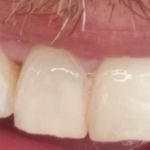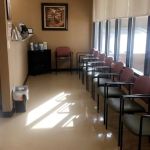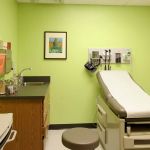The Link Between Tooth Disease and Sleep Apnea: What You Need to Know
Did you know that sleep apnea can have a significant impact on your oral health? While many people focus on the symptoms of sleep apnea, such as snoring and fatigue, the effects on your teeth and gums are often overlooked. In this article, we’ll explore the relationship between tooth disease and sleep apnea, how sleep apnea can affect your oral health, and steps you can take to protect your teeth and gums.
1. What Is Sleep Apnea and How Does It Affect the Body?
Sleep apnea is a serious sleep disorder that causes pauses in breathing while you sleep. These pauses can last for several seconds and occur multiple times throughout the night. As a result, sleep apnea can disrupt your rest, leading to symptoms like excessive daytime sleepiness, irritability, and difficulty concentrating. However, the effects of sleep apnea extend beyond just feeling tired—it can also affect your oral health in significant ways.
2. The Connection Between Sleep Apnea and Tooth Disease
Sleep apnea can have a direct impact on the health of your teeth and gums. There are a few key ways in which this happens:
- Teeth Grinding (Bruxism): One of the most common effects of sleep apnea is teeth grinding, also known as bruxism. The repeated grinding of teeth during sleep can wear down tooth enamel, leading to tooth sensitivity, cracks, and even tooth loss over time.
- Dry Mouth: People with sleep apnea often breathe through their mouths during the night, which can lead to dry mouth. A dry mouth creates an environment where bacteria can thrive, increasing the risk of tooth decay, gum disease, and bad breath.
- Gum Disease: The lack of oxygen during sleep apnea episodes can reduce blood flow to the gums, making them more susceptible to infection. Gum disease is a serious oral health condition that can lead to tooth loss if left untreated.
3. Real-Life Example: How Sleep Apnea Can Damage Oral Health
Take the case of John, a 40-year-old man who had been living with undiagnosed sleep apnea for years. Over time, John began to notice an increase in tooth sensitivity, frequent headaches, and a clicking sound in his jaw. His dentist found signs of severe tooth wear from grinding and recommended that John undergo a sleep study. The results confirmed that John had sleep apnea, which was contributing to his dental issues. After using a CPAP machine to manage his sleep apnea, John saw improvements in both his sleep and his oral health. His tooth sensitivity decreased, and he no longer experienced jaw pain.
4. How Sleep Apnea Affects Different Types of Tooth Disease
Sleep apnea doesn’t only affect the general health of your teeth—it can also influence specific types of dental problems. Here are some examples:
- Tooth Decay: Dry mouth caused by mouth breathing during sleep apnea episodes can lead to a lack of saliva, which is essential for washing away food particles and bacteria. This increases the risk of tooth decay and cavities.
- Gum Disease: The combination of mouth breathing and reduced oxygen flow can make the gums more vulnerable to infections, leading to gum disease. This condition can cause symptoms like bleeding gums, swollen gums, and bad breath.
- Temporomandibular Joint (TMJ) Disorders: Chronic teeth grinding associated with sleep apnea can contribute to TMJ disorders, which can cause pain in the jaw, neck, and shoulders.
5. Preventive Measures: Protecting Your Teeth from Sleep Apnea’s Effects
While sleep apnea can cause significant dental problems, there are several steps you can take to minimize the damage to your oral health:
- Use a CPAP Machine: Continuous Positive Airway Pressure (CPAP) therapy is the most common treatment for sleep apnea. By wearing a CPAP mask while you sleep, you can ensure a steady flow of air, reducing the episodes of apnea and alleviating symptoms like teeth grinding and dry mouth.
- Wear a Mouth Guard: A custom-fitted mouth guard can help protect your teeth from grinding. This is especially useful for people who suffer from bruxism due to sleep apnea.
- Stay Hydrated: Drinking plenty of water throughout the day can help prevent dry mouth. Using a humidifier at night can also keep the air moist, reducing the severity of dry mouth during sleep.
- Maintain Regular Dental Checkups: Visit your dentist regularly to monitor the condition of your teeth and gums. Your dentist can spot early signs of tooth decay or gum disease and recommend treatments to prevent further damage.
6. Conclusion: Take Control of Your Oral Health and Sleep Apnea
The connection between tooth disease and sleep apnea is a serious concern that can have lasting effects on your oral health. By addressing sleep apnea with treatments like CPAP therapy, using mouth guards, and taking proactive steps to maintain good oral hygiene, you can protect your teeth and gums from the harmful effects of this condition. If you suspect you may have sleep apnea or are experiencing any dental issues related to sleep apnea, it’s important to consult with a healthcare professional and a dentist. Taking action now can prevent further damage and help you maintain a healthy smile.







 Maui Whitening Orlando4.0 (32 review)
Maui Whitening Orlando4.0 (32 review) Bloomington Southside Dental Care3.0 (26 review)
Bloomington Southside Dental Care3.0 (26 review) Christiana Dental Center4.0 (650 review)
Christiana Dental Center4.0 (650 review) Carolina Dental Arts - New Bern Ave4.0 (152 review)
Carolina Dental Arts - New Bern Ave4.0 (152 review) Equitas Health Short North Medical Center3.0 (96 review)
Equitas Health Short North Medical Center3.0 (96 review) Prosthodontics of Madison - Kendra Schaefer, DMD & Christine Roenitz, DMD4.0 (25 review)
Prosthodontics of Madison - Kendra Schaefer, DMD & Christine Roenitz, DMD4.0 (25 review) The Importance of Oral Health Education During Pregnancy for a Healthy Pregnancy
The Importance of Oral Health Education During Pregnancy for a Healthy Pregnancy Best Tips for Brushing Your Teeth Properly for Healthy Gums: Essential Techniques for Oral Health
Best Tips for Brushing Your Teeth Properly for Healthy Gums: Essential Techniques for Oral Health Why Skipping Dental Checkups Can Lead to Bigger Oral Health Problems
Why Skipping Dental Checkups Can Lead to Bigger Oral Health Problems Advantages of Porcelain Dental Restorations
Advantages of Porcelain Dental Restorations How Can Diabetes Cause Tooth and Gum Problems? Preventing and Managing Oral Health Issues
How Can Diabetes Cause Tooth and Gum Problems? Preventing and Managing Oral Health Issues Healthy Habits for Promoting Good Oral Health and Hygiene: Tips for a Healthy Smile
Healthy Habits for Promoting Good Oral Health and Hygiene: Tips for a Healthy Smile